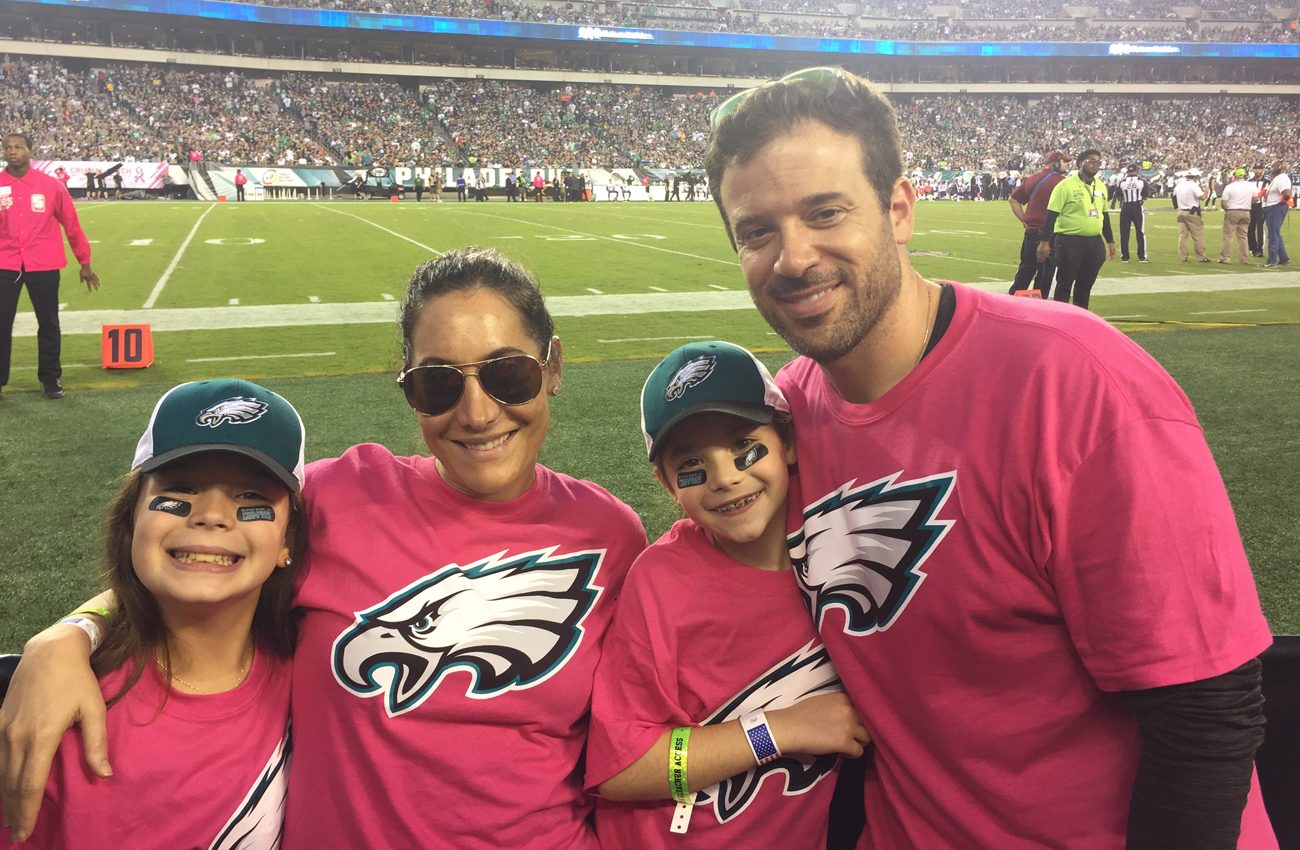Are School Snacks Dangerous for Your Child?
Tips on how to keep kids with food allergies safe from Dr Manav Segal at Chestnut Hill Allergy and Asthma Associates, LLC.

For 10-year-old Lulu Brotz (Bryn Mawr), who suffered from severe peanut allergies, going to school used to mean she would be isolated from other students at the peanut-free lunch table inside her elementary school. She had to bring her own treats in for parties, and avoid contact with any food item that might contain nuts.
“Every birthday party, I brought our own dessert,” says Lulu’s mother, Rebekka. “Every playdate, I had to call parents and ask them to take pictures of ingredient lists and send them to me before Lulu could eat any snack. It made other parents nervous. Every time I dropped her off somewhere, I held my breath until I picked her up. I never knew if parents or restaurant staff would be diligent.”
Lulu’s parents suspected food allergies when she was around 15 months old, after a taste of peanut butter triggered hives all over her body. Her pediatrician prompted them to consult an allergist. They were told that Lulu would need to have EpiPens available at all times, and for years their family had only one choice: strict avoidance of anything that might possibly contain peanuts. But thanks to a breakthrough treatment called Oral Immunotherapy, or OIT, today Lulu says she can eat normally, sit with her friends at lunch, and enjoy cake and ice cream at parties.
Rebekka had never heard of OIT until a high school classmate called to tell her about the life-changing treatment and urged her to check it out. Her friend flew every other week from her home in New Mexico to a doctor in Texas for treatment. Rebekka searched for a doctor and was thrilled to discover Dr. Manav Segal nearby in Chestnut Hill. “My husband and I researched the therapy, and I figured if my girlfriend was willing fly to Texas every other week, I could certainly drive to Chestnut Hill to meet with the doctor.”
Dr. Segal is one of only a few tri-state doctors, and one of only about 200 doctors nationwide, who performs Oral Immunotherapy. Guided by a board-certified allergist, OIT helps desensitize people to specific food allergies, particularly peanuts and nuts. The approach retrains the immune system to tolerate the specific allergens, and the payoff is freedom of food-fear and elimination of anxiety.
“A peanut allergy diagnosis once meant a paralyzing sentence for children and their families to avoid peanuts at all costs,” says Dr. Segal. “Often, the tendency is to separate the child at mealtimes and snack times to lessen the chance of eating something that triggers an allergic reaction, but that singles them out and isolates them.
“With OIT, we can begin helping children as early as ages three or four. We typically diagnose children with food allergies between ages one and two, because parents quickly recognize the immediate adverse reaction after a child tries a new food. Symptoms may range from hives or a mild rash around the mouth, to more severe reactions that could include trouble breathing, severe rashes and lethargy.
Children should be tested immediately, and once they test positive, future reactions can be more severe and unpredictable.”
Until children start attending school, parents are able to maintain control over their diets, but once a child enters pre-school or kindergarten, parents tend to become anxious about how they are going to manage food allergies, according to Dr. Segal.
To complicate matters, the number of children at risk for severe allergic reactions has more than doubled since 2010, according to a new report published by the Blue Cross Blue Shield Association.
Through OIT therapy, Dr. Segal retrains patients’ immune systems to tolerate the allergen, enabling families with food allergies to reclaim their lifestyles. As with any allergy, there can be side effects, and the most common is mild stomach upset. We have had about an 85 percent success rate, which mirrors the national success rate. This type of allergy is lifelong, so in-home maintenance should be continued with periodic check-ups.
“With regular visits over a period of 12 to 15 months, patients who faced daily fears of life-threatening reaction to less than one peanut can eat as many 10 to 12 peanuts daily. That’s life changing.”

6 Tips to Support a Child with Severe Food Allergies
Nearly 99% of children who have severe food allergies must practice strict avoidance. That places a lot of responsibility on a youngster to question and determine whether foods are safe or not when away from home. Here are things to do to help keep them safe and minimize stress for children and their families:
1. Engage with teachers and administrators as well as other parents to inform them of the child’s allergy situation and provide preventive options, and emergency responses should a child have an allergic reaction.
2. Stock and provide safe foods for school lunch, snacks, events, playdates,
3. Arrange to maintain a supply of safe snacks and treats in the classroom for your child, so if classroom treats are distributed, the child doesn’t have to feel left out.
4. Share ideas with teachers and other parents to consider providing party treats that aren’t food based.
5. Parents can formally request that the school make accommodations to provide a safe environment for their child through the development of a 504 plan.
6. Explore Oral Immunotherapy to determine if it is an option to desensitize your child to specific food allergies.
For more information visit Chestnut Hill Allergy and Asthma Associates, LLC.





